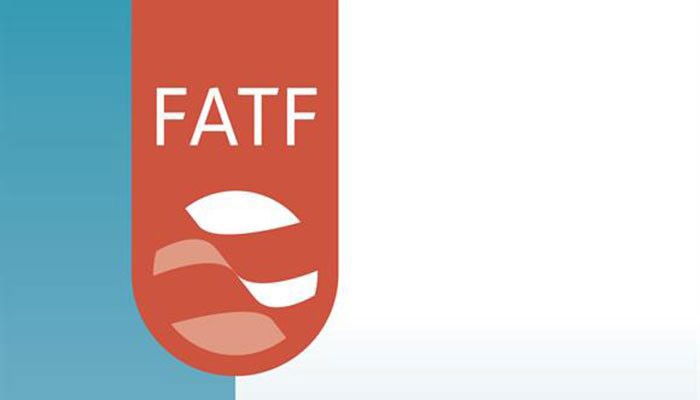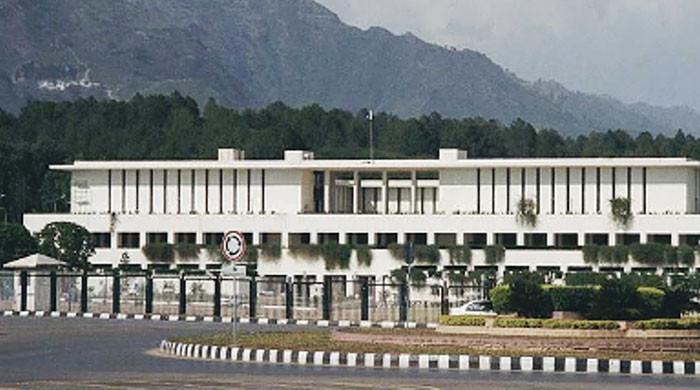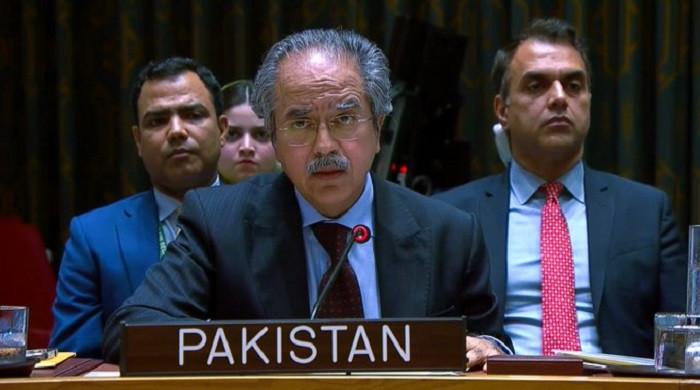Positive reports from FATF meeting in Paris prompt cautious optimism in Pakistan
Pakistan likely to avoid being placed on financial action task force black list, indicate sources
October 17, 2019

The Financial Action Task Force (FATF) is expected to make a final decision on October 18 about placing Pakistan on a black list of countries involved in terror financing, suggest reports.
The inter-governmental body of the Group of Seven nations is currently reviewing a compliance report presented by the Pakistan government on a previously agreed action plan to tackle terror financing in the country.
A meeting of the FATF, that began on October 13 and is expected to conclude on October 18, is currently underway in Paris, Economic Affairs Minister Hammad Azhar is leading a Pakistan delegation at the meeting.
Also read: US welcomes UN's decision to allow JuD chief Hafiz Saeed to use bank account
The action plan had been given to Pakistan by the FATF in June 2018 after the task force had placed Pakistan on a grey-list of countries responsible for loose money laundering and terror financing regulations.
The FATF had asked Pakistan to implement the action plan to improve anti-money laundering regimes and present progress reports to the FATF in order to avoid being placed on a FATF black list.
The black-listing of a country by the financial task force usually results in economic sanctions and trade penalties. imposed and implemented by the G-7 nations. Grey-listing by the FATF does not lead to sanctions.
Pakistan, already suffering from a financial crisis, was ill-equipped to deal with the economic impact of being placed on the black-list, and as such, readily agreed to implement the FATF action plan back in 2018.
In June 2019, the financial task force had reviewed Pakistani progress on the action plan and given Islamabad four more months to improve compliance in several key areas related to terror financing.
Earlier this week, reports in the international and domestic media had suggested that the financial body expressed satisfaction with the progress made by the Pakistan to implement the FATF action plan.
At the meeting currently underway, the G-7 body found Islamabad compliant on 10 points, partially compliant on another 10 points, and non-compliant on seven, out of a total of 27 points on the action plan.
Also read: Indians are hungrier than Pakistanis on Global Hunger Index
There is also speculation that Pakistani allies China, Malaysia and Turkey have all pledged to keep Pakistan off the FATF black-list if such a resolution is proposed by any member of the body this week.
The Gulf Cooperation Council, and Saudi Arabia, which are joining FATF as observer nations, have also shown a willingness to back Pakistan and keep the country away from the black-listing.
India, on the other hand, is utilizing all means possible to get Pakistan black-listed by the FATF. New Delhi has been making frantic diplomatic efforts to get the G-7 to impose sanctions on Pakistan throughout 2019.
Also read: Pakistan complied with 36 of 40 FATF parameters: APG report
European countries like France, Germany, United Kingdom and Netherlands have also softened their stance toward Pakistan since grey-listing the country back in 2018.
The softening has come as a result of the compliance report presented by Islamabad to the Asia Pacific Group of the FATF. If these reports are true, Pakistan is likely to avoid being placed on the FATF black-list.
In June 2019, European Commission Vice President Federica Mogherini had pledged support for Pakistan at the FATF meetings and acknowledged the strides made by the country to curb terror financing.














